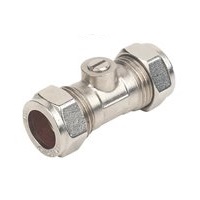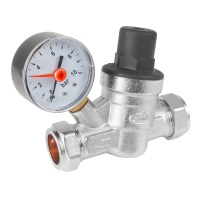Isolation Valve Installation & Replacement
The main role of the isolation valve to isolate the hot and cold-water pipework serving taps on basins, baths and sinks, and cold water to washing machines, dishwashers, toilet cisterns and many other home items that require a water connection.
It's always a good idea to check that these valves work on a regular basis. Isolation valves are designed to isolate the individual supply to each water appliance saving time and fair amount of work in certain situations. They are also vital if you are in an emergency plumbing situation should one appliance or water connection fail, meaning you can isolate the problem, reducing the risk of water damage to your home whilst still serving the rest of the household with water.
Types of Isolation Valve
There are many isolation valve types, and sizes, with a wide range of applications. One of the most common types of isolation valve is called a ball fix valve or quarter turn valve, but there are many types of valve including gate valves, lockshield valves, stop tap valves and lever valves.
One of the most common types of isolation valve is called a ball fix valve or quarter turn valve, but there are many types of valve including gate valves, lockshield valves, stop tap valves and lever valves.  Lever valves are another type of ball valve with a handle.
Lever valves are another type of ball valve with a handle.
Other designs of water valve regulate, control, or direct the flow of a water by opening, closing, or partially obstructing the flow of water. Some of the most common names you may recognise are thermostatic radiator valves (trv's), pressure reducing valves and float valves or ball cocks.
Whether you are looking to add isolation valves to your plumbing system, or you are looking for a valve replacement in Bristol, send us a message and someone will get back to you as soon as possible.





 WhatsApp
WhatsApp